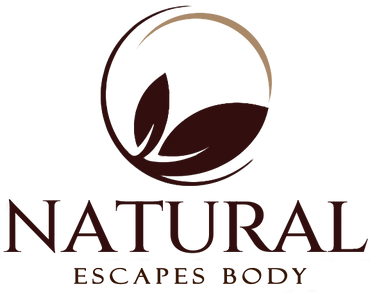Lavender Essential Oil Benefits for Skin & Hair
Lavandula angustifolia (True Lavender/English Lavender)
INCI Name:
Lavandula Angustifolia (Lavender) Oil
Extract Type:
Steam-distilled essential oil from flowering tops
Benefits:
Anti-inflammatory, antimicrobial, wound healing, soothing, antioxidant, skin conditioning, aromatherapeutic
Best Uses:
Sensitive skin care, calming blends, wound healing, natural preservation, stress relief products
Lavender essential oil, distilled from the delicate flowers of Lavandula angustifolia, is one of the most cherished ingredients in natural skincare. Known for its gentle yet effective properties, this oil has been used for over two millennia for its soothing aroma, skin-healing abilities, and antimicrobial protection. Its floral, herbaceous scent is instantly recognizable, making it a favorite in calming and restorative formulations.
What the Science Says
- Demonstrates anti-inflammatory effects by inhibiting inflammatory mediators and supporting tissue repair[1]
- Exhibits broad-spectrum antimicrobial action against bacteria such as Staphylococcus aureus, E. coli, and Pseudomonas aeruginosa[1]
- Accelerates wound healing by enhancing collagen production and angiogenesis[3]
- Shows calming, stress-reducing effects through modulation of GABA neurotransmitter activity[4]
Key Nutrients / Compounds
- Linalyl Acetate: Floral ester with anti-inflammatory and soothing effects
- Linalool: Antimicrobial and analgesic, but may cause sensitivity when oxidized
- 1,8-Cineole: Fresh, camphor-like note with antimicrobial activity
- Terpinen-4-ol: Strong antimicrobial and anti-inflammatory properties
- Lavandulol: Unique to lavender, contributes to scent and skin benefits
- Camphor: Antimicrobial and skin-penetrating qualities
- β-Ocimene: Adds freshness and mild antimicrobial protection
- Lavandulyl Acetate: Soothing ester that enhances floral aroma
Skin Benefits
- Reduces redness and irritation
- Helps prevent infection in minor cuts and burns
- Supports faster healing of damaged skin
- Protects against oxidative stress
- Calms sensitive or reactive skin
- Soothes insect bites and stings
Hair & Scalp Benefits
- Soothes itchy, dry, or irritated scalp
- Helps reduce dandruff and flaking through antimicrobial and anti-inflammatory effects
- May improve scalp circulation, supporting overall hair and follicle health
- Can be blended into scalp oils or masks to create a calming, spa-like treatment
- Offers a natural, clean fragrance that freshens hair between washes
Why Natural Escapes Body Uses It
We choose lavender essential oil for its rare combination of gentleness and potency. Its calming scent and proven skin benefits make it a cornerstone in our soothing, healing, and protective formulations.
Products Featuring This Ingredient
- Soothing body creams
- Hydrating Body Wash
- Nourishing Shampoo
- Moisturizing Conditioner
Safety Notes
- Comedogenicity: 0 (non-comedogenic)
- May cause allergic reactions in sensitive individuals (approx. 2.2% patch test positivity rate)
- Must always be diluted (max. 2% topical use)
- Pregnancy/breastfeeding: Aromatherapy only, avoid topical application
- Children: Safe with proper dilution, avoid facial use in infants
- Store in dark glass, cool location; discard if oxidized
FAQs
Can I use lavender essential oil undiluted on my skin?
No. Lavender oil must always be diluted before use to avoid irritation and sensitization.
Is lavender oil safe for sensitive skin?
It can be, when diluted to very low concentrations (0.1–0.5%), and is often used to soothe mild redness, irritation, and sunburn.
Does lavender oil help with stress?
Yes. Studies show it can have calming and stress-reducing effects through aromatherapy.
How should I store lavender oil?
Keep in a cool, dark place in a sealed glass bottle to prevent oxidation and preserve therapeutic properties.
Can lavender oil help with dandruff?
Yes. Its antimicrobial properties can help reduce scalp irritation and flaking when used in properly diluted scalp treatments.
Does lavender oil promote hair growth?
While some studies suggest it may support healthy scalp conditions that encourage hair growth, results vary and it should be used alongside other proven hair care practices.
Is lavender oil good for acne-prone skin?
Its antimicrobial and anti-inflammatory properties can help calm mild breakouts, reduce redness, and support skin healing.
Can lavender oil help with insect bites?
Yes. When diluted, it can soothe itching and swelling from insect bites while reducing the risk of infection.
Does lavender oil help with sunburn?
It may help soothe mild sunburn discomfort, especially when blended with aloe vera or other cooling ingredients.
Scientific References
- The Antibacterial Activity of Lavender Essential Oil Alone and In Combination with Octenidine Dihydrochloride against MRSA Strains. Antibiotics, 2020.
- Bingham, L.J., et al. (2019). Contact allergy and allergic contact dermatitis caused by lavender: A retrospective study from an Australian clinic. Contact Dermatitis, 81(1), 37-42.
- Essential Oils in Dermatology. Journal of Integrative Dermatology, 2025.
- National Eczema Association - Lavender and Eczema Safety
- Poison Control - Lavender Oil Safety Information

